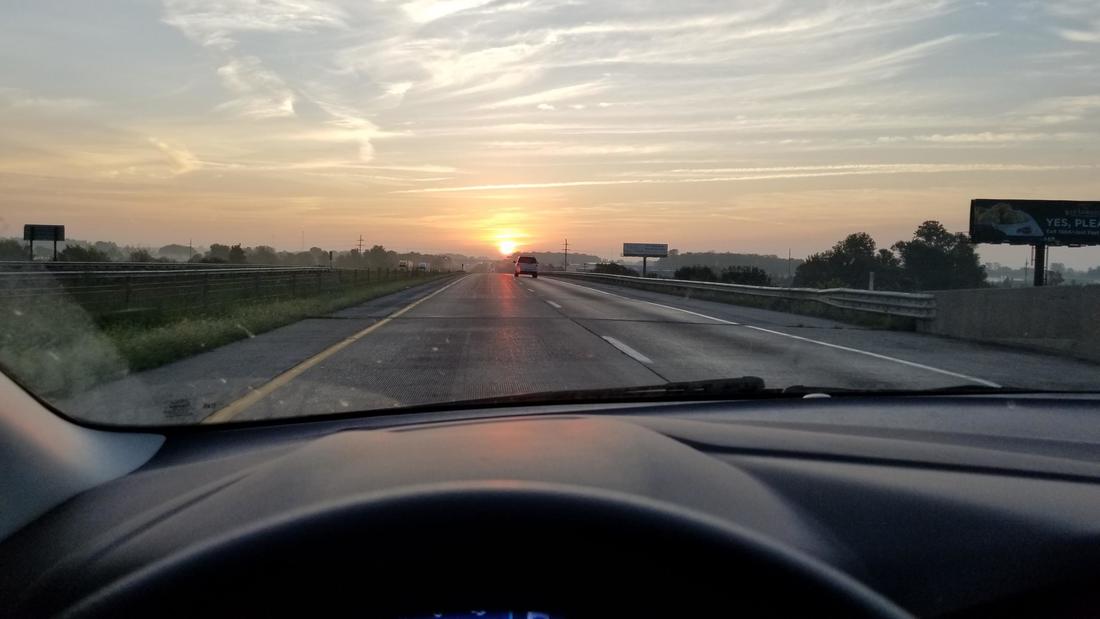"Be careful, you are not in Wonderland. I've heard the strange madness long growing in your soul. But you are fortunate in your ignorance, in your isolation. You who have suffered, find where love hides. Give, share, lose — lest we die, unbloomed." Rev. Amy Butler, minister at Riverside Church in New York City, wrote an opinion article at Religions News about the dying of organized and institutional Christianity in north America. Declines in church attendance and giving to traditional churches have not gone unnoticed. But, all is not lost. There is a sense in which there is something new, maybe better said, refreshing and not altogether different needs to happen. Her article is here: https://religionnews.com/2019/10/30/christianity-as-we-know-it-is-dying-lets-welcome-the-new-life-ahead/
My district superintendent in South Texas asked for some thoughts on the article. So, here is something of what I sent this morning: There are those are culturally part of Christianity…they go because they’ve always gone…and in the same way. Sunday morning worship for an hour, after dropping off children at their activity station, maybe meet during the week with a few families to watch a video lesson and discuss something related to life, faith, and the Bible, could be Sunday School or as it is called now, life group. Occasionally volunteer for some church-related event or service project nearby or abroad. And, they are gravitating toward big box non-denom Bethel-infused Baptist/Catholic churches: it's dark inside so sound and lights are on point, mostly great contemporary music, good coffee served by enthusiastic greeters, preaching focused on the "how" more than the "why." People have left others still sitting on pews and singing from hymnals after attending Sunday School. The veneer has changed but it's mostly the same, and folks go because they've always gone. Example: Recently, I met with a few leaders to talk shop, and one of them said, “People just won’t go to church unless it meets on Sunday morning.” There are those who are just completely indifferent – NONEs and DONEs. They believe that they’ve been there and done that and there’s nothing really more to it. And, they refuse to go back. Youth group kids went on every ski trip and mission service project and retreat and summer camp and ... then the adrenaline rush of youth ministry did not answer their questions, or even worse, question their answers as they entered adulthood and exited what James Fowler called a synthetic-conventional faith. It's a faith patched together from various teachings but not consistent or coherent (synthetic). It is a faith borrowed from parents, pastors, song lyrics, and bumper stickers or Pinterest boards (conventional). It's a meme-derived faith that makes sense in the moment but cannot be easily remembered, especially when life reveals itself as really, really hard. Example: A male parent of a trick-or-treater at pastor's house in one of our fastest growing locales in southern Texas, asked the pastor first thing after being invited to church, “So, is your church non-denominational?” They've been to youth group, and just don’t want to go back. They want to think about a faith that questions their assumptions and gives them hope when things don't look so good, and something to chase when they feel like what they have doesn't satisfy like they thought it would. So, in between the two, I think there is a place for authentic Christian community. Those are loaded words and vague enough to not really mean anything. They are root concepts. I think it means “groups of believers with a designated leader that meet regularly for worship, discipleship, or service.” This is how my church defines church. Inside this definition are expressions of authenticity, something that reflects the original genius of the Body of Christ found in the New Testament (and Hebrew Scriptures and Early Church, and other historical epochs of revitalization. There have been times when the Church remembered itself: The Desert Fathers, Franciscan monastic movement, Celtic missionaries to Western Europe, Radical Reformers of Western and Southern Europe, evangelical movements like the Great Awakening in the US and the Methodists in England, and the rise of Pentecostals in Latin America and rapid church multiplication in Africa and Asia. I do not suggest replicating past movements but learning from them and not making the same mistakes and nurturing the best ideas and practices that history has to offer. We have already made room for more organic and fluid expressions of gathered people. So, let's do it again by meeting in third spaces like coffee shops, ball fields, festivals, farmer’s markets, library study rooms, as well as homes, apartment complexes, and dinner churches that all fit this definition. See Kris Beckert's stuff at Fresh Expressions US. Alan Hirsch and Michael Frost have made careers on trying prune this garden of wilting flowers and unharvested fruit. These faithful and fruitful expressions of church may meet for a time, and then disperse, re-organize later, or move to another place but still find ways to be together as a people. It’s a little scary but not too much. So, I think churches about to bloom look like this, for starters. Authentic - seeks to find the original purpose of God's people as a locally gathered people empowered by God's Presence. Christian - identified with biblical and historic Christianity: to be called, sent, broken, healed, to be serving, loving, living as Christ in their midst. Community - gathered and identified as the "cultural expression of God's sacramental presence of God in their local context." (My definition of church, btw.) What do you think?
1 Comment
|
Bio
teacher, writer, Archives
August 2022
Categories
All
|



 RSS Feed
RSS Feed